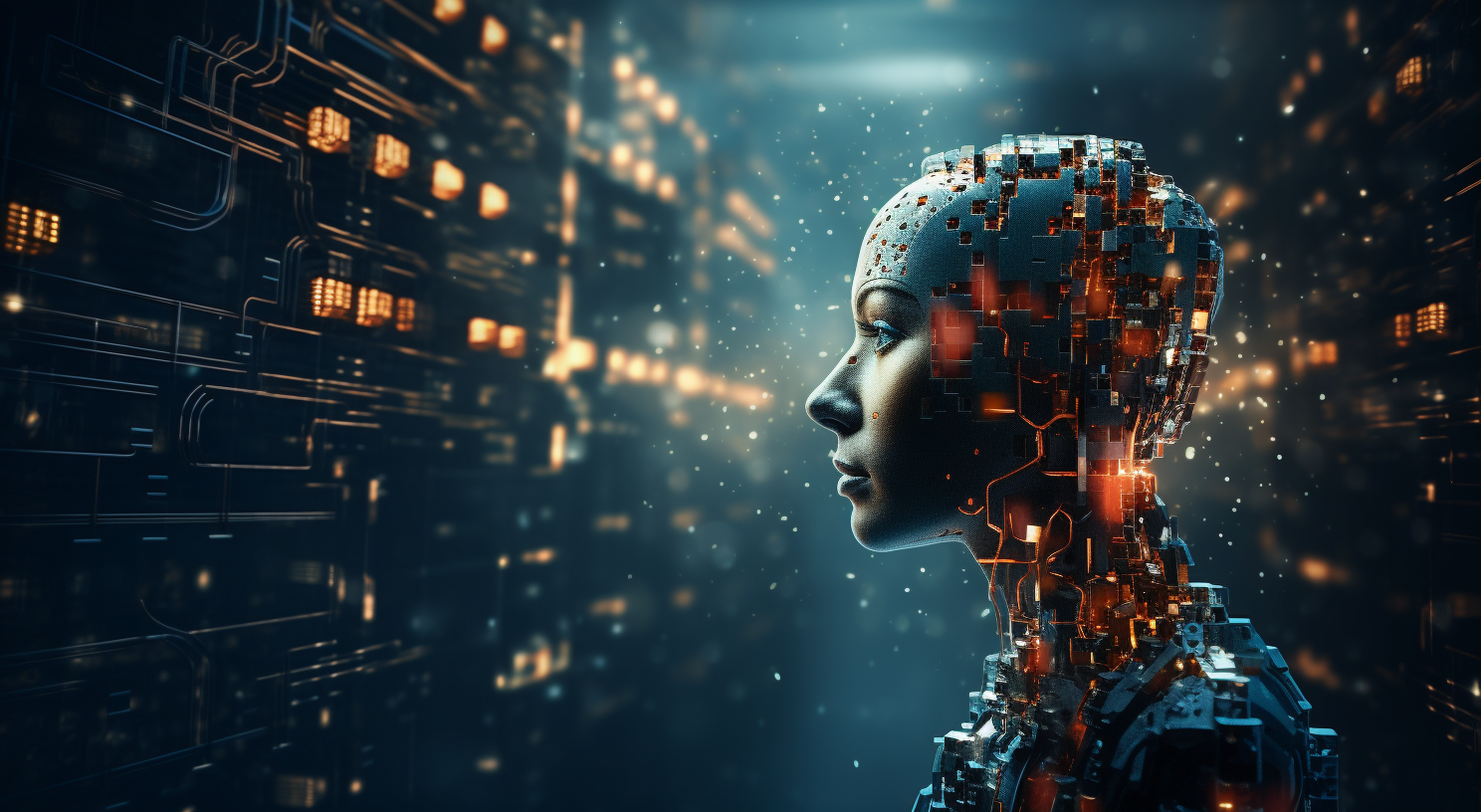that much Convergence of artificial intelligence and blockchain technology This marks a significant moment in the field of computer science. AI, a field that enables machines and software to mimic human intelligence, is characterized by the ability to analyze complex data, solve complex problems, and make informed decisions with limited human input.
In the current technological era, global giants such as Microsoft, Google, Apple, and Meta are leading the way in testing and implementing AI systems and bots. This surge in AI adoption is due to its potential to transform a variety of industries, including healthcare, automotive, finance, and most recently, blockchain. Therefore, it is becoming increasingly important to understand how AI can empower blockchain developers.
Before we look at the intricacies of how AI can serve as a powerful tool in a blockchain developer’s arsenal, it is important to explore two fundamental properties of blockchain that AI can significantly improve.
AI and Blockchain Interaction: Understanding Key Characteristics
The open source spirit of blockchain
Blockchain technology is known for its open-source nature, which democratizes access to the underlying code and protocols. This transparency drives AI developers to leverage these open source resources to improve existing blockchain features or build new blockchains from scratch.
Harness the power of data
As the blockchain industry moves toward a data-driven future, the importance of data collection and storage has become paramount. Blockchain is ready to handle massive amounts of data, including network configuration, user behavior, and security logs. AI’s ability to quickly process and analyze this data surpasses human capabilities and provides valuable insights for developers to optimize and improve blockchain systems.
For those not directly involved in development, the relationship between AI and new concepts like the metaverse presents an equally interesting area of exploration.
AI’s role in streamlining the blockchain development process
Data and market analysis for informed blockchain design
Before starting blockchain development, it is important for developers to understand user needs and market demand. This includes keeping up with the latest developments and trends in the blockchain and cryptocurrency sector. cryptocurrency news. AI can play a transformative role here. By mining a wide range of data from a variety of sources, including real-time market trends and user behavior, you can quickly analyze and pinpoint trends and user preferences. This not only saves valuable time, but also allows developers to make informed decisions about feature integration, incentive structures, consensus mechanisms, and strategic feature roadmaps.
Smart contract creation and optimization
Smart contracts are a fundamental element of blockchain systems, enabling transactions and various applications, including wallet development. AI bots can greatly assist developers in coding these contracts, ensuring efficient deployment and rigorous testing to ensure smooth operation within the blockchain.
Improved error detection and bug prediction
Due to the complex nature of blockchain technology, identifying and resolving bugs is a difficult and costly task. This is where AI can make a transformative difference by automating testing processes, debugging simple errors, and proactively identifying potential system defects. This proactive approach ensures a more robust and user-friendly blockchain experience.
Blockchain optimization after deployment
Once blockchain systems are operational, AI can further contribute by using machine learning algorithms to increase operational efficiency and reduce costs. By analyzing blockchain data, you can pinpoint areas that need improvement, such as scalability, cost efficiency, and security, and develop smarter contracts for safer and more convenient transactions.
Expanding Horizons: Widespread Application of AI in Blockchain
AI, when properly trained, can extend its capabilities beyond the basic aspects of building and maintaining a blockchain into areas such as wallet development. Create decentralized applications (DApp). AI can also play a critical role in developing identity management solutions, automating know-your-customer (KYC) processes, and analyzing transaction data to proactively identify and prevent fraudulent activity on blockchain.
Exploring the Limits: The Continued Need for Human Oversight in AI-Based Blockchain Development
Despite impressive advances in AI, there are no limits to its application in blockchain development. AI at its current stage relies heavily on human guidance for decision-making and strategic planning. AI can accelerate the development process, but it lacks the ability to independently make strategic decisions or evaluate the commercial impact of specific blockchain features.
Human developers continue to play a pivotal role in this ecosystem, improving AI programs through deep learning training, providing necessary data for AI tools, and making critical decisions about feature development and implementation.
Outlook: The future of blockchain development through AI integration
In conclusion, integrating AI into blockchain development enables a paradigm shift in efficiency and productivity. Developers are increasingly relying on AI-based tools and software to improve productivity, and will likely shift their focus from manual execution to the more conceptual and strategic aspects of blockchain design. However, AI’s autonomy in this area remains limited and human expertise continues to be indispensable.
As AI and blockchain technologies continue to advance, they are poised to transform the landscape of numerous industries. The synergy between these two technologies will not only redefine the way developers approach their work, but also potentially revolutionize the nature of technological innovation and its application across a variety of sectors.
Integrating AI into blockchain development opens a new era of efficiency and innovation and provides numerous opportunities for developers to improve their work processes. But the journey is not over yet, and the evolving relationship between human expertise and AI will continue to shape the future of blockchain technology.

